Canellakis strikes sparks with heroic Strauss in CSO debut
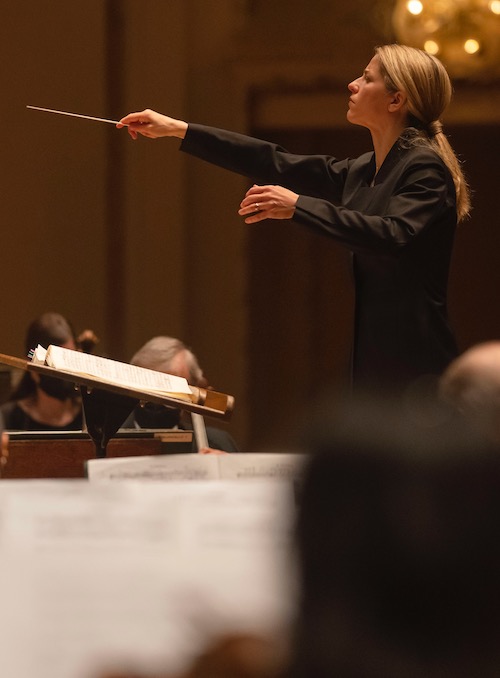
With several rows of empty seats Thursday night for a fairly populist Chicago Symphony Orchestra program, it is becoming hard to ignore the pachyderm in the room: Is the increasing violence downtown and Near North—including the fatal shooting of a 16-year-old in Millennium Park last week—starting to negatively impact attendance at cultural events?
With the CSO’s audience heavy on seniors, it’s understandable that many seasoned concertgoers are reluctant to come downtown, where they may risk the chance of being robbed, attacked, carjacked or worse.
Exiting after the concert, no doubt many were glad to see two uniformed Chicago policeman posted outside the Symphony Center entrance. That reassurance was likely short-lived, however, with this morning’s news that an hour after Thursday’s concert ended, ten people were shot and two killed in another mass shooting a mile north of the hall.
Against the uneasy backdrop of safety concerns weighing on audience minds, the CSO entered the final weeks of its season, with Karina Canellakis making an impressive showing in her CSO debut.
A winner of the Georg Solti Conducting Competition in 2016, the American musician is currently principal guest conductor of the London Philharmonic and Berlin Radio Symphony as well as chief conductor of the Netherlands Radio Philharmonic Orchestra.
The rising violinist-turned-conductor gave notice of her abilities in 2015 with an admirable bow at the Grant Park Music Festival. While Thursday’s concert was mixed overall—which was not her fault—Canellakis proved an outstanding advocate in the evening’s main work, Richard Strauss’s Ein Heldeleben.
It’s striking how many people loathe Heldenleben as much for the Late Romantic sonic excess as what they see as Strauss’s supreme egotism in writing a musical narrative with himself as protagonist of this “Hero’s Life.” As a newspaper colleague once said of a top editor, “It’s not that I don’t like him; I just don’t like the idea of him.”
Yet despite the cavils, Heldenleben is a magnificent work, chock full of melody, audaciously scaled, witty yet plumbing emotional depths. A striding theme represent the hero, as he canoodles with his companion, has a boisterous battle with his adversaries (music critics) and after reflecting on his good musical works, retreats to a sanctuary in a quiet and satisfied peace. All is painted in a masterfully crafted, continuous 46 minutes, the sections flowing seamlessly from one into the next, scored with typical Straussian panache (including nine horns).
Canellakis, 40, presents a spirited and engaging podium presence, directing the music alertly and cueing with precise gestures, without indulging in Terpsichorean excess.
Negotiating this massive score is a challenge for anybody but she invested Strauss’s Leviathan with grand, epic sweep and kept it firmly on the move. At times, Strauss’s tangle of contrapuntal lines got a bit congested and a couple balances seemed off, as with the harps’ subsidiary lines brought forward for no good purpose.
Quibbles apart, this was a superb Heldenleben by any measure, exciting, well played and often surprisingly moving.
The Hero’s theme launched with apt swagger and confidence, rich ballast at the bass end, contrasted with Strauss’s withering depiction of the Hero’s Adversaries as wheedling pipsqueaks or pompous nincompoops. (The low brass’s syllabic four-note depiction of Strauss critic “Dr. Dehring” is a classic of merciless lampoonery in any medium.)
Concertmaster Robert Chen painted the Hero’s Companion (or more accurately, “Helpmate”) with a golden violin tone and yielding tenderness. Chen’s was a more sympathetic and less querulous portrait of the composer’s formidable soprano wife, Pauline de Ahna, than many, and Canellakis gave the ensuing love theme resplendent opulence. The satiric off-center battle with his critics was duly rambunctious, brassy and cacophonous.
Canellakis scored with the individuality of her approach in the two final sections. After a clarion horn motif from Don Juan, the quotations of the “Hero’s Works of Peace” flowed with a touching inevitability (wonderfully gentle winds in the Don Quixote music). In the final section Scott Hostetler brought Alpine character to his nostalgic English horn solo—the hero’s retreat was clearly in the mountains. The tricky final bars were most sensitively handled by Canellakis with the hushed duet between solo horn and violin beautifully played by David Cooper and Chen respectively, bestowing a glowing coda.
The rest of the orchestra’s playing was on the same level, as a unit and individually, with Stephen Williamson’s free-use spontaneity making the most of every opportunity.
The evening led off with Brio by Augusta Read Thomas, heard in its CSO debut.
This 11-minute work, written in 2018, is also scored for large forces. In her program note, Thomas says Brio “unfolds a labyrinth of musical interrelationships and connections,” helpfully describing Brio as “whimsical, “colorful,” “jazzy,” “kaleidoscopic” “Stravinsky-like,” “sparkling,” and “vivid, clangorous, brassy and blazing,”
Unfortunately, this listener didn’t hear any of those qualities Thursday night. A scherzo-like, herky-jerky theme sounds in low brass and strings, which then flits among different sections of the orchestra for the duration. The tempo and theme stay largely the same, with the work centered on a kind of dogged insistence as fragments of the motif leap about to various sections and solo instruments.
The primary issue is that the main thematic material is so gray and uninspired to begin with, that the work depends on a brilliant development and working out of its straitened possibilities. Yet here—and even with the potential resources of a big orchestra—there is little to charm or engage, the work merely chugging along in a kind of unvaried hyperactive busyness.
Canellakis led an incisive, well-balanced performance, bringing bracing clarity and rhythmic point to this would-be showpiece. The composer was in attendance and received worthy applause.

The evening’s centerpiece was Schumann’s Piano Concerto, heard in its first CSO outing in eight years—odd for such a cornerstone work. Kirill Gerstein is one of our most reliable and technically equipped pianists, but Thursday night’s performance of this beloved concerto virtually defined routine.
There was a striking lack of fire and intensity from the usually impassioned soloist. Gerstein’s playing was polished and assured but with a narrow dynamic range and little expressive point or detailing. In the plain-spun Intermezzo, charm and delicacy were in scant supply. The music sparked intermittently to life in the finale but not enough to make up for the mundane preceding movements.
The performance overall sounded muted, as if it was being presented from behind a sonic scrim. Canellakis led an efficient but lightweight accompaniment, which added to the feeling of a miniaturization of one of the great Romantic concertos.
Many in the sparsely attended house clearly felt differently, as the ovations brought Gerstein back for repeated curtain calls until he favored them with an encore. The pianist imbued Chopin’s Waltz in A-flat Major, Op. 42, with all the wit, charm and scintillation lacking in the concerto. Go figure.
The program will be repeated 8 p.m. Saturday and 3 p.m. Sunday. cso.org
Posted in Performances
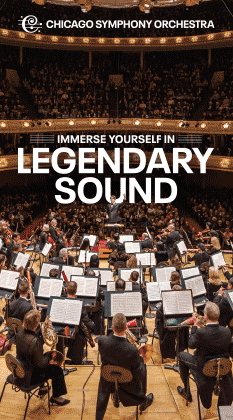
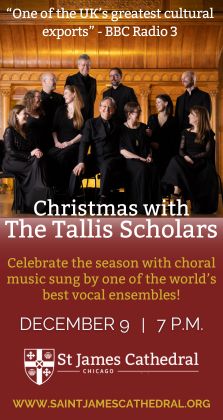
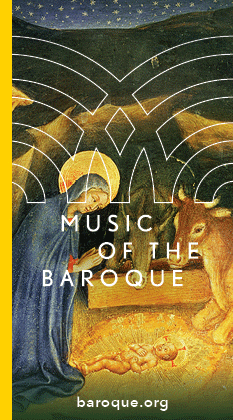
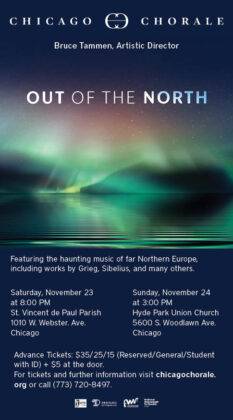
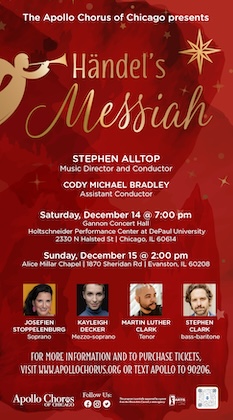
Posted May 21, 2022 at 10:27 am by A Long Time Subscriber
As a long time subscriber and supporter of the Chicago Symphony Orchestra, this review strikes a sharp chord. Following a wonderful May 14 concert of Beethoven, Mozart, Haydn and Tchaikovsky, I exited the hall onto Adams Street about 10 p.m. Suddenly, I was encored by wailing sirens from CPD and CFD vehicles. The sidewalk along Wabash Avenue teemed with teenagers, chilling out. At Adams, the heavy odor of marijuana perfumed the air. Although cumbersome, pedestrians were able to pass through the crowd without incident.
At Adams and State, that once great street, CPD and CFD vehicles blocked traffic north for several blocks. Again youths were milling about with some harassment. Fortunately, I was able to pass without incident to the Blue Line station. Not until the following day, did I learn of the shooting at The Bean.
Unfortunately, these scenes are becoming an everyday occurrence. When Capone was in his prime, the mob only shot their own. Now everyone is a potential target. With summer festivals beginning, Chicagoans wonder what awaits.
The lack of attendance is right on. When Maestro Muti is on the podium, full house. Otherwise, 80% capacity, max. Sometimes, the hall is only 50% to 60% occupied even for an excellent program led by a fine, young upcoming maestro. Sad, particularly when the CSO is one of the world’s finest. If this continues, the CSO may become neighbors with the Bears in Arlington Heights.
I emailed the Orchestral Association on my post-concert experience. They are providing additional security around the hall. How much “clout” they and Loop power brokers can exert on City Hall remains dubious since incompetence reigns in Chicago and Springfield.
Posted May 21, 2022 at 8:56 pm by Gerald Zimmerman
I attend and enjoy the Friday matinee concerts. I’ve observed that attendance is, at best, 50 percent of the hall capacity.
Posted May 23, 2022 at 11:58 am by Richard Eastline
This concert deserved an audience larger than the fair-sized one that attended the Thursday program. It isn’t all that common to be in the presence of a relatively unknown guest conductor who generates an impressive performance in tackling a massive Strauss tone poem with such assurance. Controlling expanded orchestral forces is a challenge for any conductor but her precise gestures clearly brought results.
It would not be surprising to find her in the role of music director of a major American orchestra in the very near future.
Posted May 24, 2022 at 12:23 am by Peter DG
We were at the Friday matinee. Agree with all your praises and criticisms, but alas no encore. I judged the opening piece as an improvement over her previous compositions.
As to the crime situation, years past we avoided matinees because, honestly, that audience is too distracting. But these days getting to a train station after an evening performance is not safe.
Posted May 24, 2022 at 12:34 pm by Donuts4All
Went to Thursday’s and Saturday’s concerts. Thursday was an impressive debut, but Saturday’s Heledenleiben was on another level entirely. Gone were the all the little technical issues heard on Thursday. Other than a trumpet gaffe, it was a dizzying performance with nearly perfect execution. Very memorable concert.
Canellakis has the makings to be a great conductor with a grand legacy. She just needs an opportunity and a willing partner.